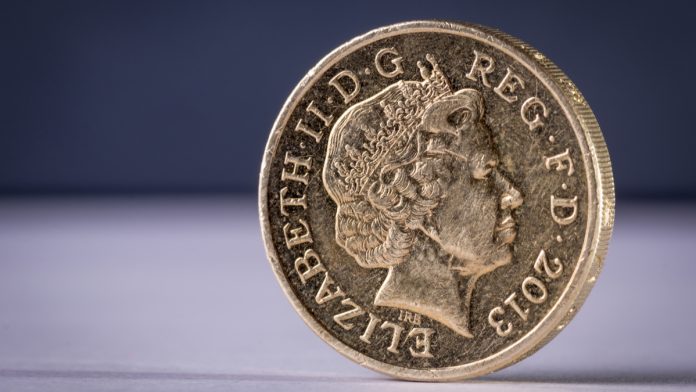The pound initially sunk lower versus the euro on Wednesday as Bank of England Governor Mark Carney unnerved investors. The pound euro exchange rate dropped to a low of €1.1141 before rebounding to €1.1162, approximately the same level that it had started the day. The pound is moving higher versus the euro in early trade on Thursday.
| What do these figures mean? |
|---|
| When measuring the value of a pair of currencies, one set equals 1 unit and the other shows the current equivalent. As the market moves, the amount will vary from minute to minute. If the euro amount increases in this pairing, it’s positive for the pound. Or, if you were looking at it the other way around:1 EUR = 0.87271 GBPIn this example, €1 is equivalent to approximately £0.87. This measures the euro’s worth versus the British pound. If the sterling number gets larger, it’s good news for the euro. |
The pound dropped sharply in the previous session as BoE’s Mark Carney sounded more dovish than he has for a while. In an appearance in front of the Parliamentary Treasury Select Committee Mr Carney gave his most definitive steer yet that he would vote for an interest rate cut in the event of a no deal Brexit. He believed that a no deal Brexit would be a significant shock to demand and would not resolve the uncertainty that is hanging over businesses. The prospect of a rate cut sent the pound lower.
| Why do interest rate cuts drag on a currency’s value? |
|---|
| Interest rates are key to understanding exchange rate movements. Those who have large sums of money to invest want the highest return on their investments. Lower interest rate environments tend to offer lower yields. So, if the interest rate or at least the interest rate expectation of a country is relatively lower compared to another, then foreign investors look to pull their capital out and invest elsewhere. Large corporations and investors sell out of local currency to invest elsewhere. More local currency is available as the demand of that currency declines, dragging the value lower. |
His comments come following comments last week when Mr Caney said that the BoE could hike rates if the economy performed as the central bank expected. The central bank’s base case scenario is a smooth Brexit with a deal. An option which is looking increasingly less likely as pro-Brexit Boris Johnson remains the favourite to win the Conservative leadership battle.
At the end of today’s session investors will look towards consumer sentiment data. Analysts are expecting the GFK consumer confidence index to have slipped lower in June to -11 from -10. Lingering concerns over Brexit is impacting the UK consumer’s sentiment. This is bad news for the economy because a nervous consumer is unlikely to spend as much.
Euro Investors Look To German Inflation Data
The euro steadily gained across the previous session, despite the German’s view of the economy declining in July. The GFK consumer confidence barometer fell to 9.8. Salary expectations suffered a blow and many Germans now fear losing their job. This comes amid a trade conflict with the US and the ongoing US — Sino trade dispute impacting global demand.
| Why does poor economic data drag on a country’s currency? |
|---|
| Slowing economic indicators point to a slowing economy. Weak economies have weaker currencies because institutions look to reduce investments in countries where growth prospects are low and then transfer money to countries with higher growth prospects. These institutions sell out of their investment and the local currency, thus increasing supply of the currency and pushing down the money’s worth. So, when a country or region has poor economic news, the value of the currency tends to fall. |
Analysts are not expecting today’s German inflation figures to create much movement in the euro. Analysts are expecting inflation to remain steady on both a monthly and yearly basis. With US GDP data also due and given that the euro trades inversely to the dollar, the euro could be trading at the will of the dollar today.
This publication is provided for general information purposes only and is not intended to cover every aspect of the topics with which it deals. It is not intended to amount to advice on which you should rely. You must obtain professional or specialist advice before taking, or refraining from, any action on the basis of the content in this publication. The information in this publication does not constitute legal, tax or other professional advice from TransferWise Inc., Currency Live or its affiliates. Prior results do not guarantee a similar outcome. We make no representations, warranties or guarantees, whether express or implied, that the content in the publication is accurate, complete or up to date. Consult our risk warning page for more details.
This article was initially published on TransferWise.com from the same author. The content at Currency Live is the sole opinion of the authors and in no way reflects the views of TransferWise Inc.





